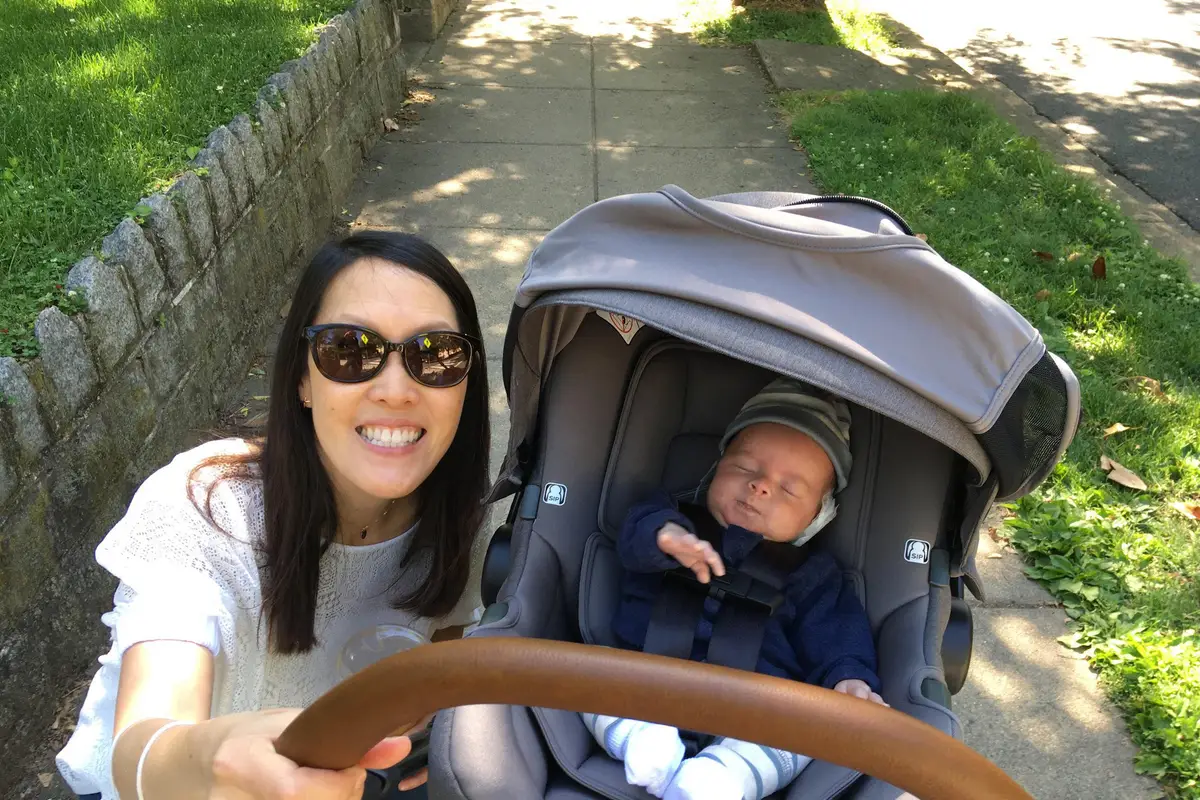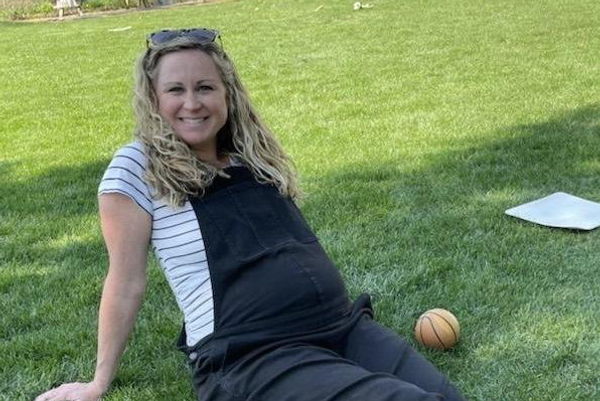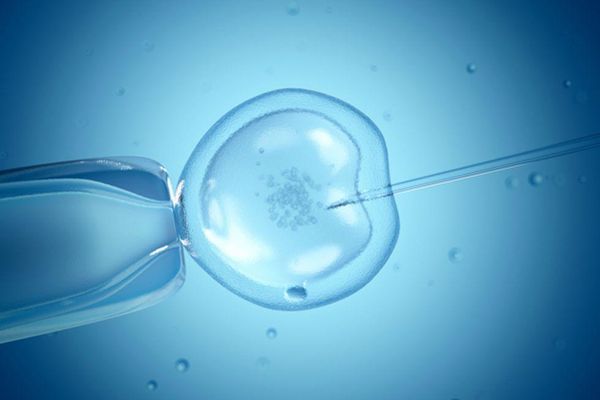As told to Liz Sauchelli
My husband and I always wanted to have children, but we knew there would be difficulties because I have an autoimmune disease, endometriosis and fibroids. One of my doctors suggested we consider using a gestational carrier, but my husband and I weren't ready to go that route.
I tried having surgery to remove the fibroids and some of my endometriosis scarring and then began in vitro fertilization (IVF). We still had hope that I would be able to carry a pregnancy to term. However, it wasn't meant to be. I got pregnant a few times, but while it was clear that I could get pregnant, I didn't seem to be able to stay pregnant.
We put a pause on trying to get pregnant and took a step back to consider our options. About six months later, I woke up one morning and recalled the previous conversations I'd had with doctors about using a gestational carrier. I mourned the loss of not being able to carry my and my husband's child, and it was definitely painful. But I realized that the end goal was to have our baby — and after what we'd been through, I felt that would be the best way to do it.
Leading up to the decision, we'd been through all of the emotions of loss and frustration, and when we finally decided, it was like an aha! moment. Our doctor was extremely encouraging, and it felt like a solution to a long-festering problem. I was so relieved. The stress of trying to relax, eat non-inflammatory foods and take a cocktail of vitamins and supplements to assist my underperforming womb went away.
I started researching clinics, asking for references so I could talk to parents who had gone through the process. I also had a couple of friends who had their children this way and spoke to them about their experiences, which was invaluable. We decided on a small agency, and it took a year to be matched with Kathleen and her husband.
We felt a connection right away. Kathleen and I are both one of four daughters. Our husbands have similar career backgrounds. And we could tell that Kathleen had a great mindset, was caring and would be able to handle any challenge that came her way during the pregnancy.
I was so excited and so grateful to Kathleen, her husband and their children. Pregnancy isn't easy and for them to take on the responsibility of bringing our baby into the world was just huge. One of the most challenging parts about the process was the time. There is a lot of waiting involved during the process under normal circumstances and because of the Covid-19 pandemic, the transfer of our embryo to Kathleen's body was delayed an extra six months.
Ironically, the pandemic gave us more opportunities to spend time with Kathleen and her family, who were within driving distance to us. Covid-19 made the world stop. There were no more weekend sporting or social events. We weren't seeing friends and family like we usually did, and it felt like the four of us could really focus on the baby. We also had the space to really get to know each other. Once the clinic gave the go-ahead and Kathleen became pregnant, we saw them every few weeks.
While Kathleen was pregnant, I was hopeful for the first time in a long time. It's one of the rare moments in my life where I truly had to let go and fully trust another person. We spoke by phone every Friday. She included me in every step of the pregnancy, and I stayed positive the entire time. When you entrust your baby to someone else to care for inside their body, there's a lot of trust involved. Kathleen was on top of everything and was also extremely positive. She was like, "I got this!"
The delivery was almost like a scene from a movie. Kathleen went into labor six weeks early, two days after my husband had left for Colorado to visit family. I quickly scheduled a flight back for him and we welcomed our son within 72 hours. Afterward, he spent a couple weeks in the neonatal intensive care unit (NICU), where Kathleen and her husband also visited him.
Our son's birth was a huge surprise to most of our family and friends. We had decided to wait until a month before Kathleen's due date to start telling people. That was intentional: While going through IVF, I remember updating friends on a successful embryo transfer and positive pregnancy test, only to tell them weeks later it didn't stick. Those conversations were hard to have, and I didn't want to share that we were pregnant via gestational carrier until we were further along.
Once people's initial shock wore off, they were super excited for us and impressed that we could keep it under wraps for so many months. With so much negativity because of the pandemic, they were excited to hear some positive news, and our son was this glowing light for so many people. Since his birth, we've brought him to meet Kathleen and her husband's children. There is so much joy when we get together.
Gestational carrying is another tool in medicine's bag of tricks for having a child and growing a family. There are so many reasons why someone can have trouble conceiving or carrying a pregnancy, but it doesn't mean they can't have a family. The "test tube baby" of the 1970s is now a mainstream medical treatment of infertility known as IVF. I see surrogacy in the same light and feel like an early adopter.
My husband and I thought we were expanding our family by adding a child. What I didn't expect was that we'd be expanding our family by adding Kathleen, her husband and their children. It was such an unexpected bonus. We started out the process as strangers, became friends and ended up family. We had this amazing experience together — and I feel so lucky.
Read Kathleen's full story.
- Considering Surrogacy? Get the Answers You Need ›
- Building Our Family and Choosing Surrogacy ›
- Infertility Killed My Sex Life ›
- Infertility Leaves a Mark on Body and Soul - HealthyWomen ›
- How to Choose a Fertility Clinic or Specialist - HealthyWomen ›







